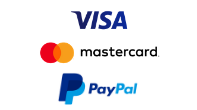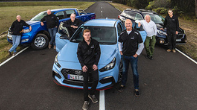Adhering to some simple guidelines will aid in a successful sale of your old car, says Tim Pomroy.
I recently sold our household’s second car and it proved to be a fast and stress-free experience, but sadly that’s not always the case. A seller’s two main options are trading in the car to a dealer or putting it up for private sale. The former is often more convenient, although many big dealerships are inclined to think older vehicles aren’t worth the hassle and paperwork and will give you a lowball offer as a disincentive to trade in. Handling the sale yourself might take a bit more effort, but you can end up with much more money in your pocket.
Preparing the car
Firstly, get an idea of your car’s value. The NRMA’s Motoring and Technical Advice department can help. They have access to industry data and can provide a broad price range, while factoring in the vehicle’s condition and kilometres travelled will deliver a more exact guide.
Clean the car inside and out or have the car professionally detailed if you don’t have the time. Don’t forget to remove all your personal items from the boot and glovebox, and dig out the car’s service history. I always like to try advertising on free community websites first, although the big car sales websites provide much greater exposure at a cost of $60 to $100 for the average vehicle.
Whichever you decide, it’s important to take photos that show the vehicle in its best light (another reason to clean it thoroughly). A more photogenic backdrop is preferable to an image of a car parked up against a fence or next to the garbage bins on your driveway. If your car has personalised number plates you want to keep, you’ll need to head to Service NSW, put the personalised plates on hold, and have a replacement set reissued.
When a buyer is interested
Don’t meet people at unfamiliar locations. While selling my old Commodore, one potential buyer asked to meet late at night in a servo located in a suburb well away from my home. Daylight hours in busy public locations like a council carpark are best – and take a family member or friend with you.
Negotiation on price is part of the game, so have a firm minimum price set. If there’s reasonable interest, you’ll know the price is in the ballpark. You’re not donating the car to charity, so don’t be swayed by hard-luck stories from buyers.
Don’t let anyone test drive the car without a valid licence. Take a photo of it or write down their details. I prefer to sit in the car during the test drive; don’t be afraid to end negotiations if a potential buyer thinks that’s unreasonable.
Finalising the deal
For cheaper cars, cash is still the fastest way to close the deal, but electronic bank transactions and PayPal have become the norm. Some buyers might want to organise a vehicle inspection prior to settlement. In this case, agree on a deposit, have the inspection done, and then hand over the keys once you can see the balance of funds in your account.
Provide the buyer with a receipt and have the vehicle’s registration papers ready. They’ll need to be in your name and you’ll have to sign and date the ‘Notice of Disposal’. Once the transaction is complete, go online to notify Service NSW of the sale to avoid any fines or tolls the new owner incurs.












